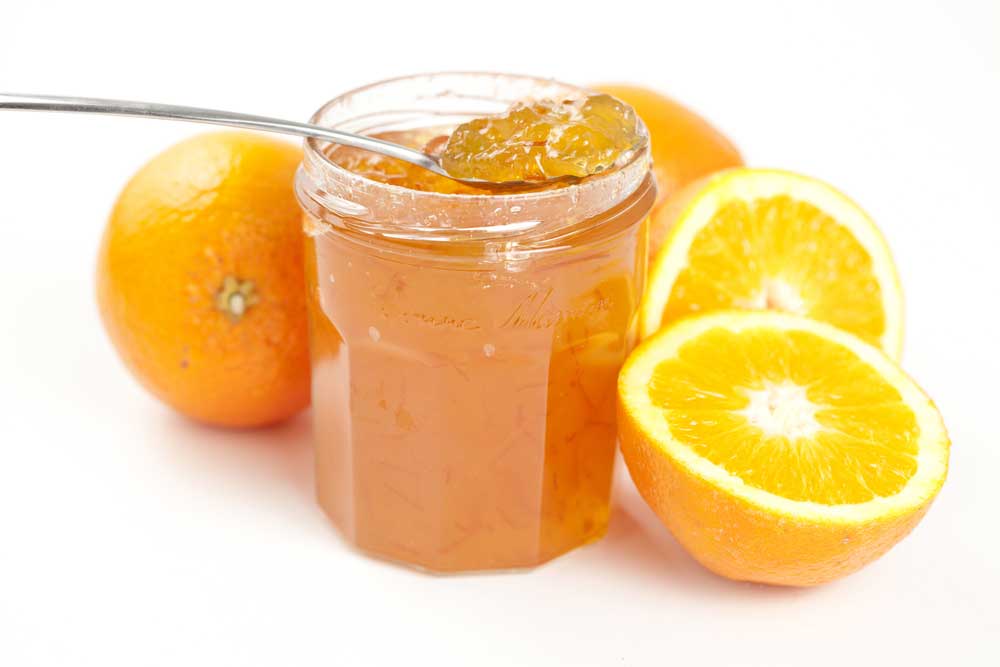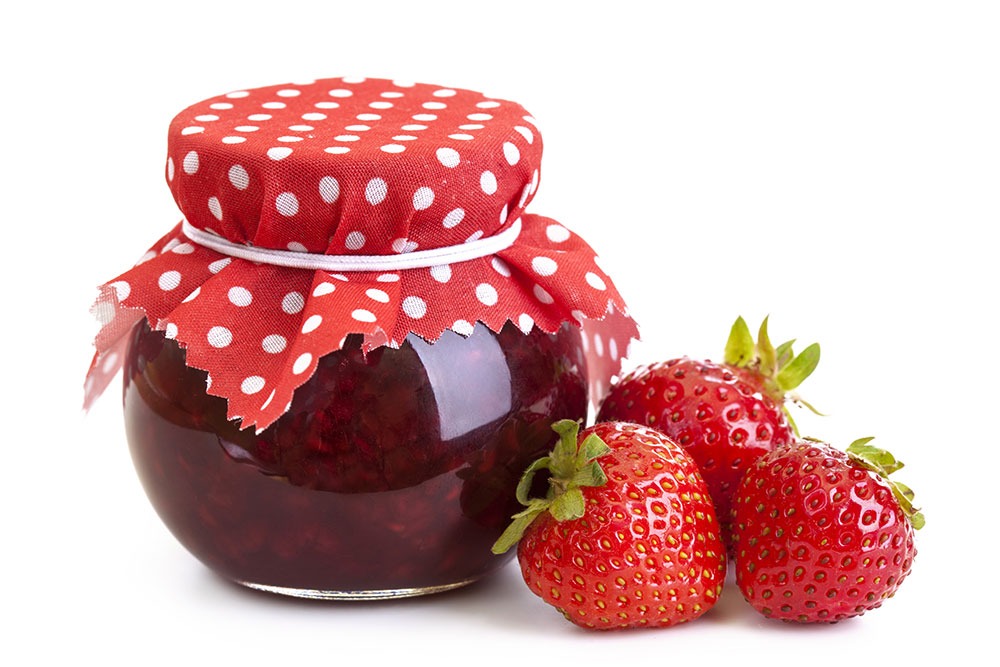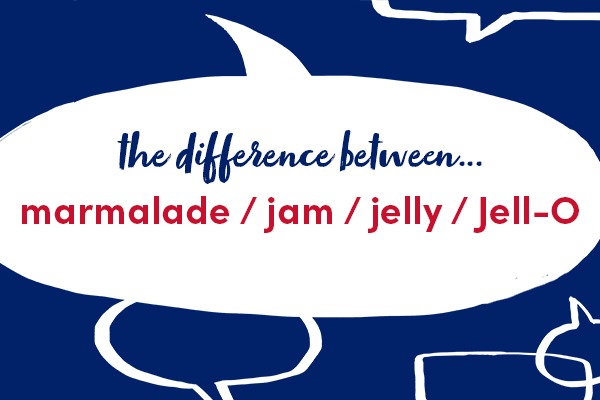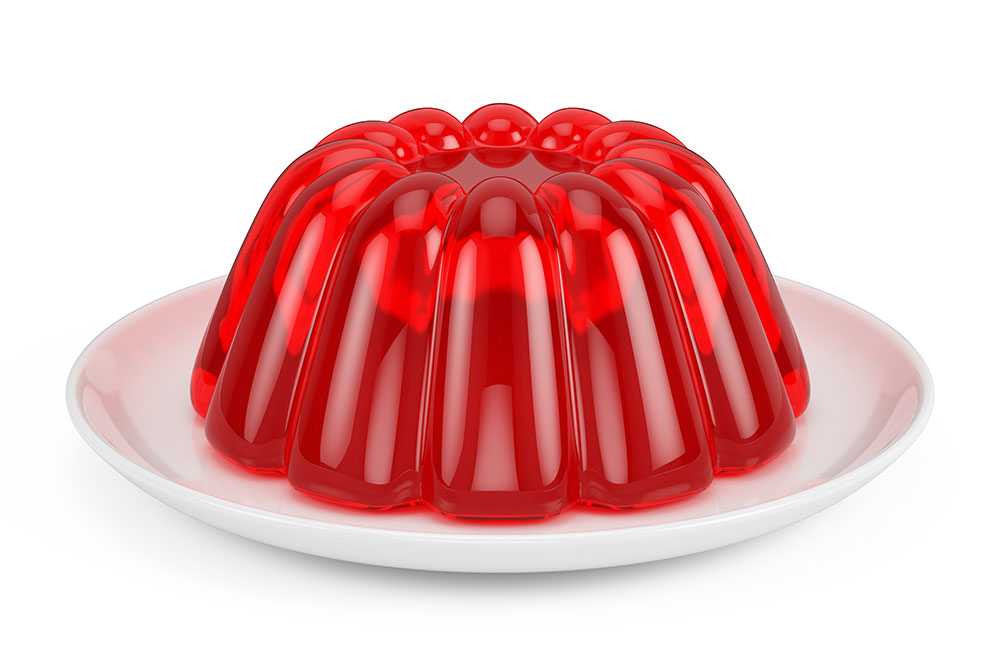This week we are looking at some words which are used differently in British and American English: marmalade, jam, jelly and Jell-O®.
marmalade

Marmalade is a sweet food made from oranges, lemons, limes, or grapefruit. In the UK, people spread it on bread or toast and eat it as part of their breakfast. In English, marmalade refers only to a food made from oranges, lemons, limes, or grapefruit; don’t use it to refer to a similar food made from other fruits.
I love toast with orange marmalade.
jam

A similar food made from other fruits, for example blackberries, strawberries, or apricots, is called jam in British English.
I bought a jar of raspberry jam.
jelly
It’s called jam or jelly in American English.
She made us jelly sandwiches.
Find out more in our English Usage article.
This blogpost is based on Collins COBUILD English Usage, written for learners of English. For more examples of English usage points, please visit: https://grammar.collinsdictionary.com/english-usage.
All opinions expressed on this blog are those of the individual writers, and do not necessarily reflect the opinions or policies of Collins, or its parent company, HarperCollins.





collins_dictionary_official
The home of living language. #wotd #wordlovers #collinsdictionary
Read our word of the week definitions and blog posts: